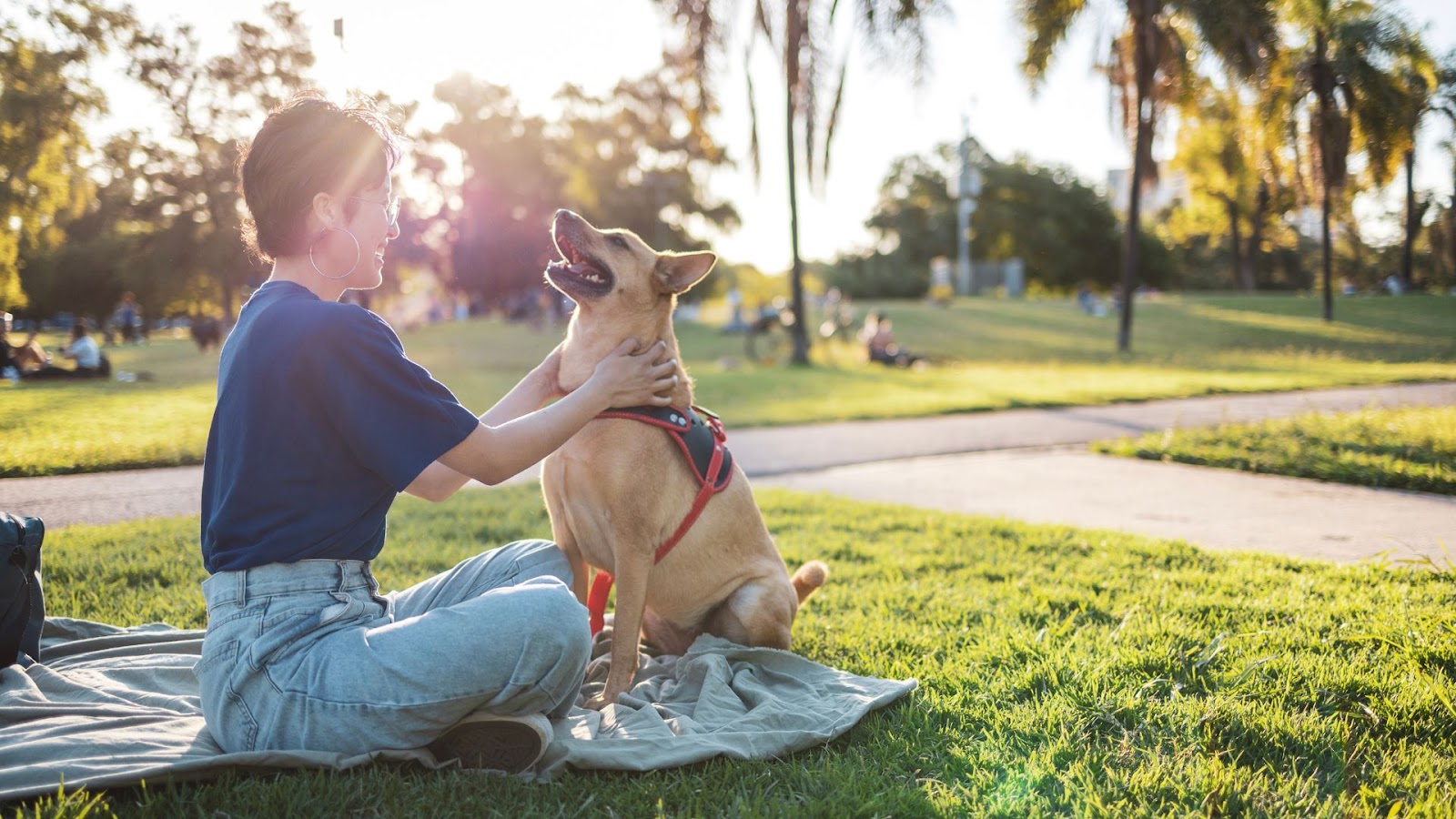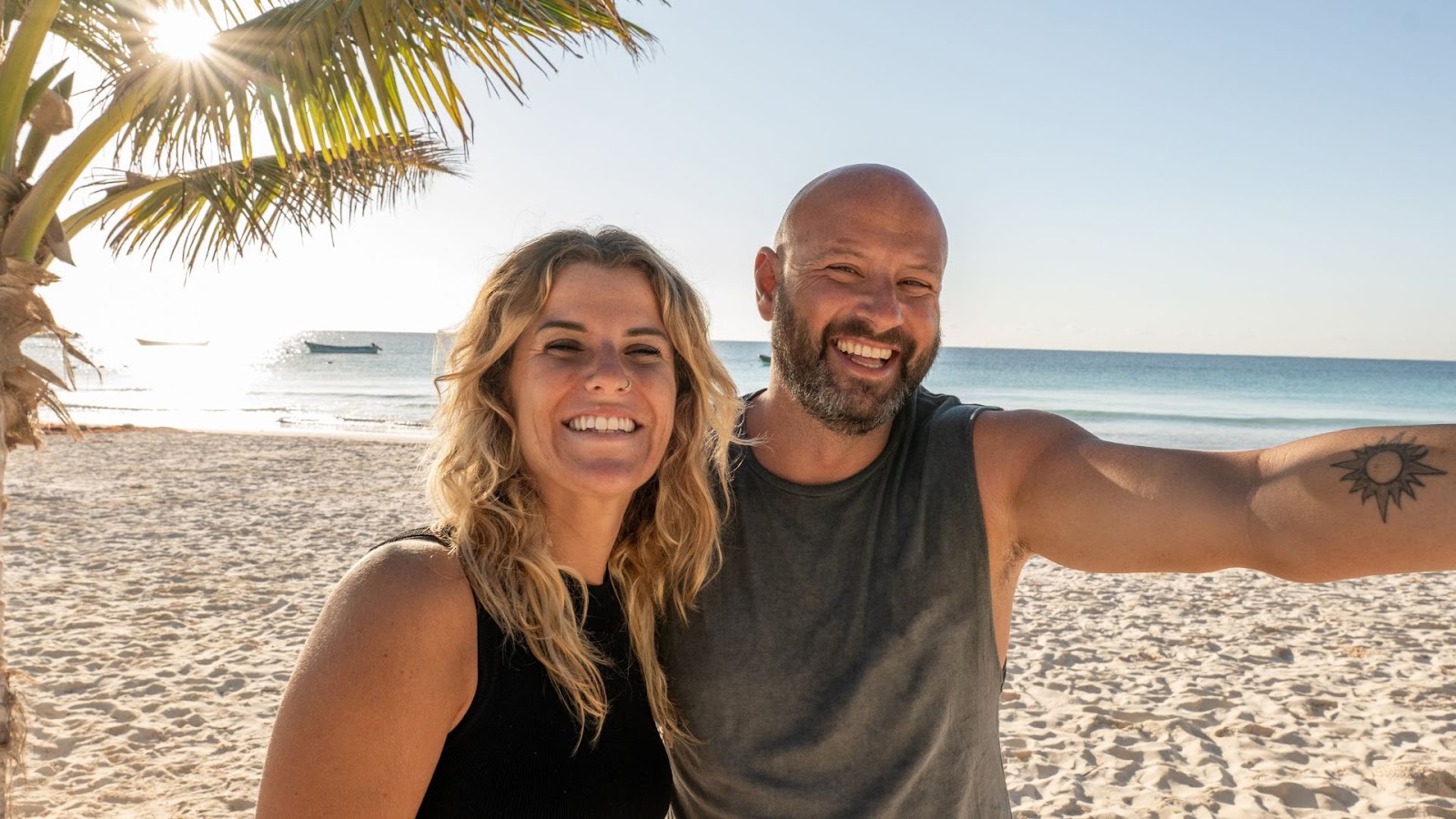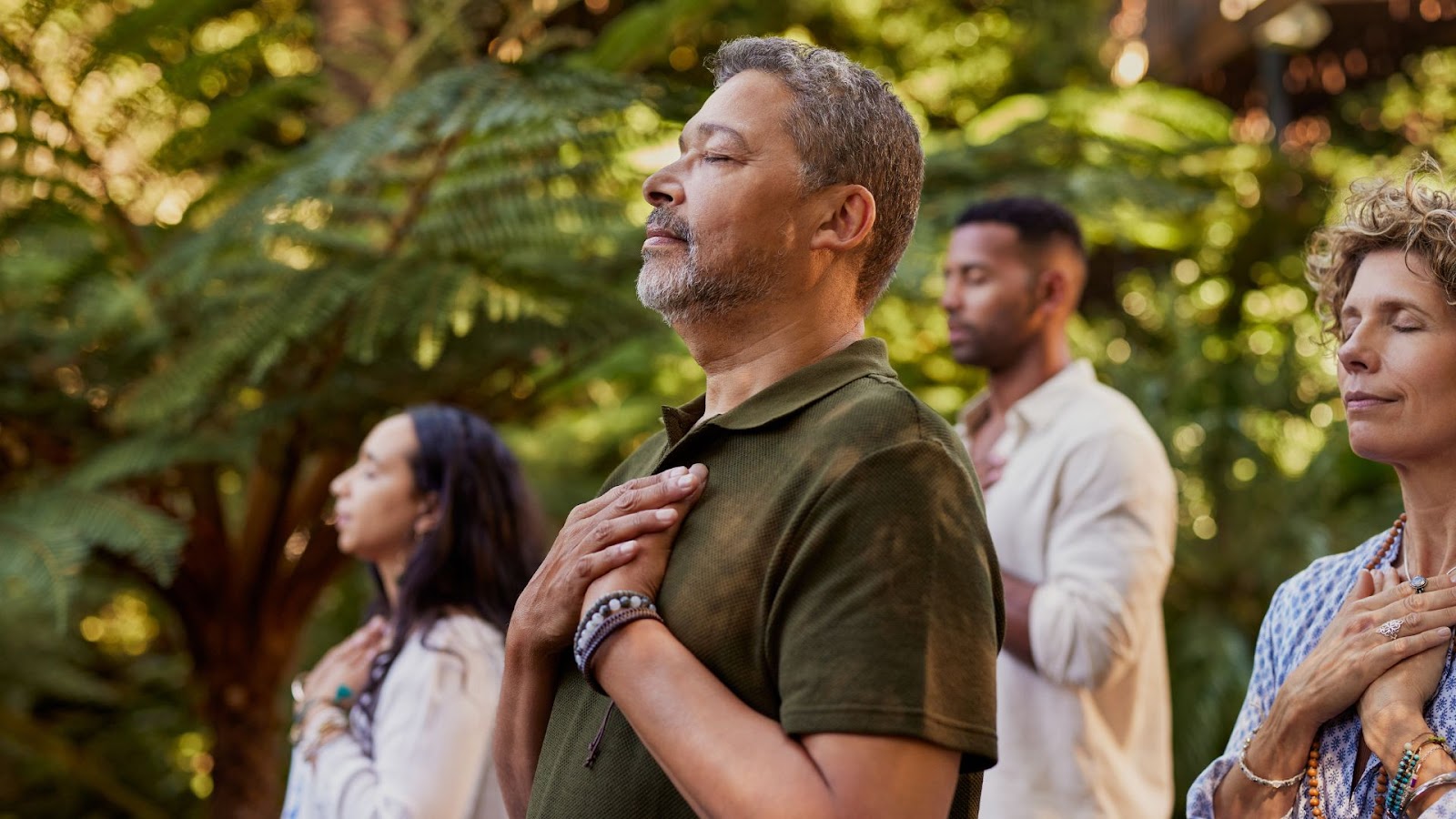Health
Spending more time outside is my secret wellness weapon

Feeling flat, foggy or fed up? As Karen found, stepping outside could be your easiest mood-booster yet.
By Karen Bleakley
Getting outside is one of the simplest and most effective ways to boost our mental and physical health. Yet many of us spend most of our time indoors, often glued to screens and surrounded by artificial light. According to the Department of Climate Change, Energy, the Environment and Water, Australians spend a whopping 90% of their time inside.
It’s not ideal, but it’s understandable that our outside time drops as we get older. The routines that once got us out of the house – like the school run or heading to work – may no longer be part of our day. It becomes all too easy to stay inside, but as we’ll explore, nature offers powerful benefits for our wellbeing. Making the effort to step outside and soak up the fresh air is always worth it.
A daily walk made me feel better
I can vouch for the benefits of walking in nature as a form of self-care. Since getting a dog a few years ago, I walk outdoors daily and have increased my step count significantly. As someone who works at a desk all day, these walks give me fresh air, help me meet people in my community and keep my energy levels up. My dog keeps me accountable – he gets me outside even when I don’t feel like it!
Two daily walks have become part of my self-kindness routine, and they’ve dramatically improved how I feel as a result.
I’m not imagining the benefits, either. Heather Eliassen, professor of nutrition and epidemiology at Harvard T.H. Chan School of Public Health, explains that spending time outdoors can lead to improvements in sleep, blood pressure, mental focus and even reduce the risk of chronic disease. So, while getting outside lifts your mood, it could also be doing wonders for your body too.
Nature’s built-in stress reliever
Ever noticed how a walk in the park or a trip to the beach instantly makes you feel calmer? That’s no accident. Spending time in natural spaces helps lower cortisol, the hormone linked to stress. Researchers from Frontiers in Psychology recommend just 20 to 30 minutes in nature to start seeing benefits.
Proximity matters, too. A study from the University of Exeter found that people living further from green or blue spaces – like parks, forests, lakes and beaches – are more likely to experience anxiety and depression. Just being close to nature supports your mental health and reduces the need for medications and doctor visits.
Nature also helps recharge your mental batteries. According to Attention Restoration Theory (ART), time outside gives our minds a break from the hectic demands of everyday life, helping us regain focus and spark our creativity. And the best part is that it doesn’t have to involve hiking up a mountain – it can be as simple as watching a sunset or sitting quietly under a tree.
Move your body, multiply the benefits
We all like getting more results for less effort. Adding movement to your time outdoors amplifies the rewards. You’ll soak up Vitamin D from the sunlight – great for your bones, immunity and mood – and you’ll get your heart pumping too.
Read more: The hidden pandemic of Vitamin D deficiency
Victoria Health's The Benefits of Walking report outlines how walking can reduce the risk of disease, support mental health and boost social connections – plus it’s an easy, free and accessible way to exercise.

Australia’s warm, sunny climate makes outdoor activities easy all year round. Unlike gyms, the natural world offers ever-changing scenery, helping reduce the monotony of workouts and keeping things interesting. Being outdoors also encourages mindfulness, allowing you to tune in to your body and surroundings.
Mindfulness and self-kindness outdoors
Beyond physical health, time outdoors can offer emotional and mental restoration. It’s not just about fresh air and fitness – it’s also a powerful way to reconnect with yourself.
Erica Webb, a registered counsellor, Somatic exercise coach and host of the SelfKind podcast, encourages us to see outdoor time as a form of mindfulness and self-care. She explains:
“Something I would recommend to anyone: get outside for a walk and use it as an opportunity to be in the moment. We spend a lot of time in ‘consumption’ mode and so much less in ‘being’ mode.
“A walk outside where you simply allow your senses to explore is an amazing way to practice mindfulness while moving your body. What can you hear, see and smell? Skip the podcast (just for now), switch your music off and listen to the sounds of nature. Being with the trees has a way of soothing your nervous system, and I don’t think we give simple practices like this enough credit.
“Time outdoors moving your body and being in the moment is self-kindness in action. It’s choosing to support your body and your mind. Supercharge that self-care time with self-compassionate self-talk, a hand over your heart and some deep breaths.”
Getting started with outdoor activities is easier than you think
You don’t need fancy gear, a personal trainer or an expensive gym membership to get outside. In Queensland, City of Moreton Bay Mayor Peter Flannery highlights the benefits of the Healthy and Active Moreton program.
“We know how important it is to get outdoors, breathe in the fresh air and connect with nature. [The program] makes it easy for people to try something new, get moving, save money and meet new friends in our beautiful city,” Mayor Flannery said.
Activities are free or low-cost, and while they are open to all, they’re especially welcoming to older adults. Classes are led by professionals and are focused on building community. Think lakeside yoga, walking groups, fitness bootcamps, meditation, even a bit of pickleball.
Brisbane City Council runs a similar program as part of its Active and Healthy activities. This includes Forest Bathing Yoga classes run by yoga teacher, meditator and sound healer, Laura Luck.
Forest bathing, or Shinrin-yoku, is a Japanese practice that involves immersing yourself in the natural environment to engage the senses and reduce stress.
“Research shows Shinrin-yoku and mindfulness yoga improve sleep, lower inflammation, reduce blood pressure and boost creativity. Participants often say a session feels like 12 hours of deep rest. Anxiety decreases and mental clarity improves," Laura explains.
Easy, accessible ways to connect with nature
Spending more time outdoors is easy – you don’t need to be an athlete. You don’t even need to be sporty. There are lots of easy, accessible ways to start and many of them are free or low-cost.
- Walk or jog in parks or along the waterfront
- Try a group fitness bootcamp
- Join a community garden (or even spend time in your own garden)
- Practice yoga, Pilates or Tai Chi outside
- Swim outdoors at your local beach or pool
- Give kayaking or stand-up paddleboarding a try
- Find some local cycling trails
These activities don’t just improve your health, they also build connections, helping you feel part of a community. Even if you have an aversion to exercise, you can find something simple to get started.

Make it a habit that sticks
Forming a habit around outdoor time doesn’t have to be complicated.
The 1000 Hours Outside movement encourages people to swap screen time for green time. It’s a great motivator for all ages and abilities (not just families with young kids!), with free trackers, an app and activity ideas that help you stay engaged. The philosophy is simple: even if you fall short, you still win by spending more time outdoors.
Here are some other ways to build the habit:
- Begin with just 10 to 15 minutes a day
- Join a step challenge or train for a fun run
- Get a buddy to help you stay motivated
- Use an app like NatureDose to track your outdoor time
Remember, it is about small doses of consistency, not intensity. Every step, breath and moment spent in nature adds up and benefits your health.
What are you waiting for?
In a world full of screens, schedules and distractions, stepping outside is one of the easiest, most powerful ways to boost your wellbeing. It can lift your mood, strengthen your body, clear your mind, and help you feel more connected to the people and the world around you.
Whether you start with a simple walk like I did, or join a local outdoor class, the path to better health is waiting right outside your door.
Feature image: iStock/MStudioImages
The information on this page is general information and should not be used to diagnose or treat a health problem or disease. Do not use the information found on this page as a substitute for professional health care advice. Any information you find on this page or on external sites which are linked to on this page should be verified with your professional health care provider.
More ways to feel good:
